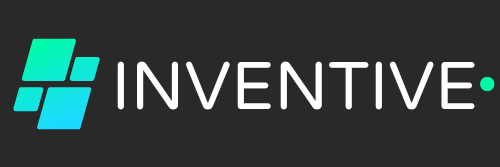SOLID Principles OOP | Complete Guide | InventiveHQ
Master the SOLID principles of Object-Oriented Design to write cleaner, more maintainable, and scalable code with practical examples.
The SOLID principles, introduced by Robert C. Martin (Uncle Bob), are five fundamental guidelines that help developers create robust, modular, and maintainable object-oriented software. These principles ensure that code remains flexible to change, easy to understand, and resilient to future requirements. By mastering Single Responsibility, Open/Closed, Liskov Substitution, Interface Segregation, and Dependency Inversion principles, you can design systems that are not only easier to extend but also more resistant to breaking when modified.
Understanding SOLID Principles
SOLID is an acronym representing five key principles that address common design challenges in object-oriented programming:
- Single Responsibility Principle (SRP): A class should have only one reason to change
- Open/Closed Principle (OCP): Software entities should be open for extension but closed for modification
- Liskov Substitution Principle (LSP): Subtypes should be replaceable for their base types without altering behavior
- Interface Segregation Principle (ISP): Clients should not be forced to depend on interfaces they do not use
- Dependency Inversion Principle (DIP): High-level modules should not depend on low-level modules; both should depend on abstractions
Single Responsibility Principle (SRP)
The Single Responsibility Principle states that a class should have only one reason to change, focusing on a single responsibility rather than handling multiple concerns. This creates smaller, more maintainable, and reusable classes.
# Violation: Multiple responsibilities in one class
class User:
def __init__(self, name, email):
self.name = name
self.email = email
def save_to_database(self): # Database responsibility
print(f"Saving {self.name} to database")
def generate_report(self): # Report responsibility
print(f"Generating report for {self.name}")
# Better: Separate responsibilities
class User:
def __init__(self, name, email):
self.name = name
self.email = email
class UserRepository:
def save(self, user: User):
print(f"Saving {user.name} to database")
class UserReportGenerator:
def generate_report(self, user: User):
print(f"Generating report for {user.name}")Benefits of Applying SOLID Principles
Implementing SOLID principles leads to significant improvements in code quality and maintainability:
- Improved Maintainability: Easier to modify and debug individual components
- Enhanced Reusability: Modular classes can be reused across different projects
- Better Testability: Smaller, focused components make unit testing more effective
- Reduced Technical Debt: Clean, organized code prevents future refactoring needs
- Improved Scalability: Extensible design supports growing project requirements
Key Takeaway: SOLID principles are not just theoretical concepts—they solve real-world software challenges and ensure that systems remain flexible and robust over time.
Common Mistakes and Best Practices
While SOLID principles provide excellent guidance, they can be misapplied. Here are key mistakes to avoid:
- Overcomplicating code: Breaking everything into tiny classes without clear benefit
- Modifying instead of extending: Violating OCP by changing existing classes for new features
- Improper inheritance: Creating subclasses that break base class expectations
- Large interfaces: Forcing classes to implement methods they don’t need
- Tight coupling: High-level modules depending directly on low-level implementations
Remember: SOLID principles should enhance code quality, not create unnecessary complexity. Apply them judiciously based on your specific context and requirements.
Elevate Your IT Efficiency with Expert Solutions
Transform Your Technology, Propel Your Business
Master advanced software architecture and design patterns with professional guidance. At InventiveHQ, we combine programming expertise with innovative cybersecurity practices to enhance your development skills, streamline your IT operations, and leverage cloud technologies for optimal efficiency and growth.

